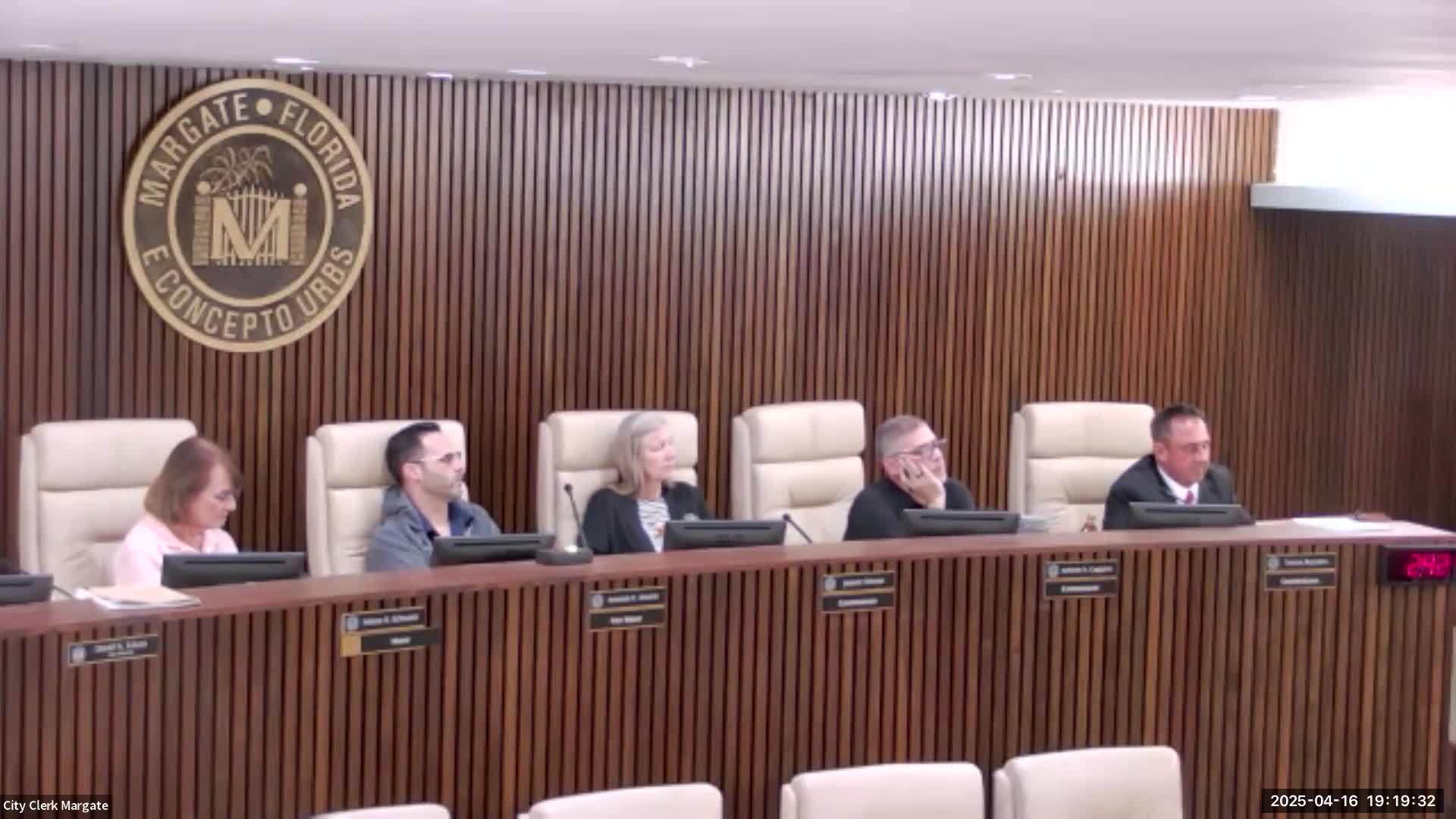Margate commissioners agree to study code changes after residents urge permission to euthanize invasive iguanas
Get AI-powered insights, summaries, and transcripts
Subscribe
Summary
Residents from Paradise Gardens neighborhoods told the City Commission that iguanas are damaging property and posing health risks; commissioners directed staff to draft code revisions to allow humane euthanasia of invasive species, with a likely two-reading ordinance aimed for June or July.
Margate residents urged the City Commission on April 16 to change city code to allow residents or licensed contractors to humanely euthanize invasive iguanas after dozens of speakers described property damage, health concerns and repeated encounters with the reptiles.
The commission heard multiple accounts from Paradise Gardens residents who said iguanas are damaging seawalls and landscaping, entering homes and presenting hazards for pets and people. John Donahue, president of Paradise Gardens Section 4 HOA, told commissioners: "They are destroying our seawalls and canal banks. They are digging holes in yards and under houses." He said residents had previously been told by police or staff that they could euthanize the animals, but that animal control most recently declined to issue permits.
City Attorney David Tulsa told the commission the city's current code makes it illegal to kill any animal within city limits and that the existing regulatory path allows homeowners to hire a trapper with a permit to remove iguanas but not to kill them. Tulsa said the Florida Fish and Wildlife Commission (FWC) permits humane killing of iguanas on FWC property, "but that doesn't necessarily extend to the areas where they live." He said amending the city code would be necessary to authorize euthanization within Margate.
Residents described property losses and personal fear. One speaker said she had spent $14,000 to repair a seawall and home damage caused by iguanas; another said elderly neighbors were afraid to use their patios. Several speakers and commissioners emphasized public-safety concerns from people encountering large animals on porches or rooflines.
Commissioners responded with support for drafting changes. Vice Mayor Serio said he supported "looking into" language mirroring FWC that would treat invasive species differently and urged careful parameters to avoid encouraging unsafe weapon use. Mayor Arlene Schwartz and other commissioners asked staff to work with police and the animal control officer to draft a code amendment with limits and enforcement guardrails. City staff indicated such a revision would require two commission readings; staff estimated the earliest return date for draft language would likely be in June or July 2025.
The commission did not adopt an ordinance or change code text at the meeting. Instead, the body directed staff and the city attorney to prepare proposed code amendments and implementation parameters, including whether and how permits would be issued, where euthanasia would be allowed (for example, on private property with owner consent), and enforcement and safety provisions.
Speakers representing Paradise Gardens said they had circulated permission forms among homeowners to allow board members or volunteers to remove iguanas from private yards with signatures and were seeking a clear city policy rather than ad hoc enforcement. Several commissioners stressed the need to avoid creating a public-safety risk by permitting unchecked use of firearms or encouraging unlicensed people to discharge weapons in public spaces.
Next steps: staff will draft code language and consult with the police department and the animal control officer about operational parameters. The city attorney said the matter would return as a two-reading ordinance if changes to the code are proposed.
